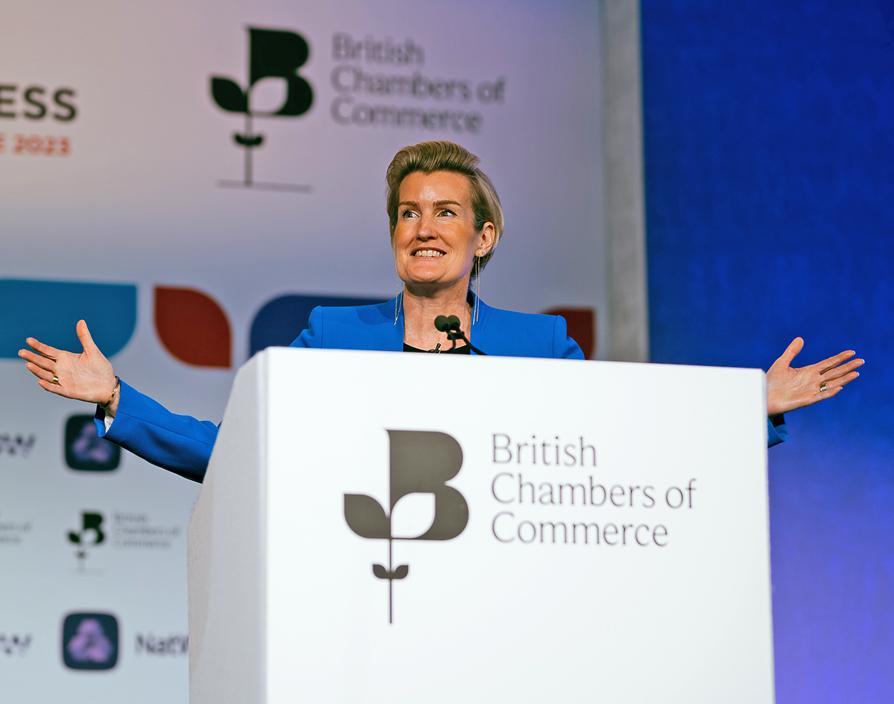Speaking at the British Chambers of Commerce recently, Chancellor Jeremy Hunt called for “action not words”. It came on the back of the Chambers’ call to action stations with the launch of its new campaign, Where Business Belongs.
And action is something business knows a thing or two about, as I see every day as chair of the Small Business Charter. Our work is providing vital skills for small firms through the Help To Grow: Management scheme.
Both the Chambers and Small Business Charter are deeply rooted in the UK business scene, and my observation is that both would subscribe to the view that backing British business now is an urgent priority.
We have to recognise that if there is an answer to our future, it rests with our entrepreneurs. To weather the storm of economic downturn, we must liberate the “heroic spirit of business”, as the founder of Whole Foods, John Mackey told me several years ago.
Growth may not be certain in times of challenge, but neither is decline. The future is unknowable, and that is why it’s there to be fought for. It’s why I fully support the recent call out from Julia Hoggett, the CEO of the London Stock Exchange, when she channelled Lin Manuel Miranda’s Alexander Hamilton, saying, “We have to be young, scrappy and hungry about how we go about fighting to grow.”
There is no doubt that the story of our current economy and society is filled with jeopardy and requires hunger. According to the IMF, Britain is expected to be the only major industrialised country to see its economy shrink this year.
The continental picture isn’t too much better. Christine Lagarde, president of the European Central Bank, said, “It’s not a brilliant year – but it’s a lot better than we have feared.” It’s a prognosis that could be much worse, but it’s still about anaemic growth at best and a flat line at worst.
When I co-founded my business, Seven Hills, in 2010, we were living in an era where going fast and breaking things was the mantra of the day. Now it’s different. We must move quickly and fix things: people, progress, places, and the planet.
In a time when more of the world’s top 100 economies are corporations than countries — 69 to 31 at the last count in 2018 —business matters more than ever in the economic story, and it can shine a light on the future we want. If there is a ‘New Normal’, it’s change. And if there is a new challenge, it’s how we master that change.
It brings me to William Gibson, who wrote in 2003 that the future is already here — it just isn’t evenly distributed.
Want the proof? In 2021, there were approximately 11 billion connected IoT devices. This is expected to rise to 29 billion by 2025.
But even now, on the brink of technological innovation like we’ve never seen before, the Collins Dictionary word of the year for 2022 was ‘Permacrisis’. From pandemics to Putin to changing Prime Ministers.
The only missing ‘P’ word was ‘positivity’. Something easy to forget when change is accelerating at a rate of dog years, where every new year equates to seven old ones.
But while much of our national debate bemoans that progress (another P) — not least in technology, where AI is accelerating at a pace almost none of its key leaders ever anticipated — it’s precisely because things are happening at speed and because the future is already here, that we can move fast and fix things.
The most powerful companies of our lifetime? You’ve not heard of them because they haven’t even been created. Every year in the UK, there are over 800,000 business registrations. And for me, each of these registrations is a vote of confidence in the future. A start-up ready to trade, a scale-up prepared to grow.
Jeff Bezos — love or loathe him — captured some of this spirit with Amazon. The first URL he registered was relentless.com — try it!
And relentless GRIT will define tomorrow’s business journey: Growth, Resilience, Innovation and Trust. Those with the guts to go with it, those who take the moonshot, and those who show the right stuff.
In short, starting a business is about taking a big bet on the future. And in turn, we shouldn’t be afraid to put money on them getting it right. As the Director-General of the British Chambers of Commerce, Shevaun Haviland pointed out: “Nobody should bet against Britain…because the history of British business is extraordinary.”
To weather the storm, as they have always done, entrepreneurs must seize the day with grit, positivity and confidence in their incredible potential. Because attitude is the small thing that makes a huge difference, and if we are serious about change, we can’t do the same thing and expect a different result.
The world simply does not have time for words. As the Chancellor says, it’s time for action.
Share via:








































